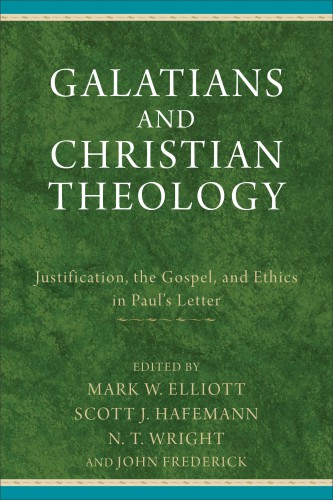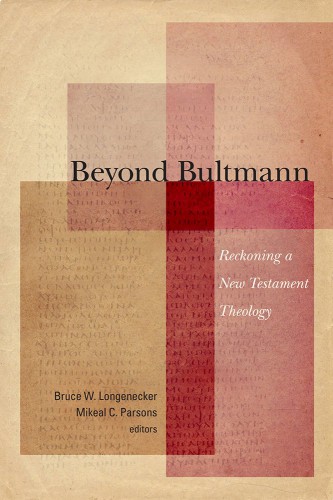
Some years of theology publications are better than others, and to be honest the crop has not been so plentiful this year. But the books that have come out are pretty fantastic, and well worth a read.
 The Second Letter to the Corinthians by Mark Seifrid. This is not your normal commentary! Rather than retreading ad nauseum all of usual topics commentaries cover like authorship, dating, provenance, Greek parsings etc., Seifrid’s main purpose is to explicate Paul’s theological logic throughout the book. The Paul that emerges is one of real theological breadth and profound commitment to the grace of God in Christ Jesus.
The Second Letter to the Corinthians by Mark Seifrid. This is not your normal commentary! Rather than retreading ad nauseum all of usual topics commentaries cover like authorship, dating, provenance, Greek parsings etc., Seifrid’s main purpose is to explicate Paul’s theological logic throughout the book. The Paul that emerges is one of real theological breadth and profound commitment to the grace of God in Christ Jesus.
Galatians and Christian Theology: Justification, the Gospel, and Ethics in Paul’s Letter edited by Mark Elliott, John Frederick, Scott Hafemann and N.T. Wright. For anyone who is interested in what is going on in Pauline Studies today, this is the book to get. This proverbial “who’s who” of Pauline scholarship today (featuring essays by both Simeon Zahl and Javier Garcia, who readers may recognize from their contributions to The Mockingbird Devotional) uniquely aims to expound some of the rich theological implications of the book of Galatians. The contributions by Wengert, Garcia, McCormack, Gaventa, Rabens, Barclay and Zahl are particularly good.
The Early Luther: Stages in a Reformation Reorientation by Berndt Hamm.
Historians have been attempting to contextualize Luther within the late middle-Ages for a while now, but this reading is particularly illuminating. Hamm outlines the various ways in which Luther is indebted to medieval forms of thought – and only comprehensible within this framework – while also giving a robust account of the ways in which Luther supersedes his intellectual heritage.
Apostles of Reason: The Crisis of Authority in American Evangelicalism by Molly Worthen.
Published at the tail end of 2013, and not so much a work of theology as one of religious and intellectual history, Worthen’s book brims with wit and insight and incisive commentary, a must-read for anyone interested in the roots of American Evangelicalism in the 20th century. It helps explain much of our current landscape and the contradictions it contains–the strange mixture of triumphalism, pietism, materialism, and anti-institutionalism–but does so without undermining the core concerns of the faith itself. A remarkable achievement.
Eden and Afterward: A Mockingbird Guide to Genesis by Will McDavid.
A whistle-stop tour through some of the big moments of the book of Genesis, McDavid offers compelling readings of classic stories that feel fresh and unexpected. For example, Genesis 3 is not just about the origin of sin in the world, but also illustrates the tension between the desire to be loved and the desire to be self-sufficient. Perhaps you’ve heard that before, but I’m guessing not.
It Is Finished: 365 Days of Good News by Tullian Tchividjian. Tchividjian teams of with none other than Nick Lannon to write a daily devotional full of pop-culture references, personal stories, and the good news of the love of Jesus for sinners. If you think a devotional that preaches the message of grace every day would get redundant or boring, you’re wrong on both fronts.
Haven’t Read Yet But Suspect It Would’ve Made the List: Ordinary: Sustainable Faith in a Radical, Restless World by Michael Horton.
Honorable Mentions:
 Beyond Bultmann: Reckoning a New Testament Theology edited by Bruce W. Longenecker and Mikeal C. Parsons.
Beyond Bultmann: Reckoning a New Testament Theology edited by Bruce W. Longenecker and Mikeal C. Parsons.
Despite all of its warts, Rudolf Bultmann’s “Theology of the New Testament” placed justification by faith at the heart of his understanding of the New Testament’s message. This collection of essays is a reassessment of that classic work. While many essays in this volume rehearse tired caricatures and criticisms of Bultmann, the contributions by Barclay, Watson, Byrskog and Standhartinger might be worth the price of the book.
How (Not) to Be Secular: Reading Charles Taylor by James K. A. Smith.
This guide book to Charles Taylor’s “A Secular Age”, might prove to be more interesting and helpful that the source material. If Taylor narrates how it is we in the west became secular, Smith successfully summarizes Taylor’s argument and offers some thought-provoking existential implications. Reading Taylor’s book, I thought it needed a good editor, but perhaps I just needed to read Smith’s book instead.
May You Live in Christ: Spiritual Growth Through The Vision of St. Peter by Robert Jennings.
Recent Discoveries:
Eccentric Existence: A Theological Anthropology by David Kelsey. At two volumes and 1000+ pages, Kelsey offers an ambitious and extensive account of what it means to be human. Those who press on through this sweeping and dense study will be greatly rewarded. Kelsey is not interested in describing humanity in itself, on the basis of its biology, sociology, or other givens. Instead, he examines what it means to be human in light of God’s relation to humanity, in particular, what does it mean that we only live by the hand of God who is working all things toward eschatological consummation through the reconciling death of Jesus.
The Pentecostal Principle by Nimi Wariboko. As far as new angles on the grace of God, including its manifestation in history and daily life, it doesn’t get much better than this. “The pentecostal principle is the power to begin”, Wariboko offers as a thesis for his work, looking at how the Spirit of God both disrupts anthropocentric human institutions and offers real, substantial life. In particular, his thoughts on the Spirit’s opening us up to play as a fresh, end-less way of living provide rich opportunities for rethinking both lived pneumatology and the touchstones of grace in everyday life.

via tomgauld.com

COMMENTS
Leave a Reply












